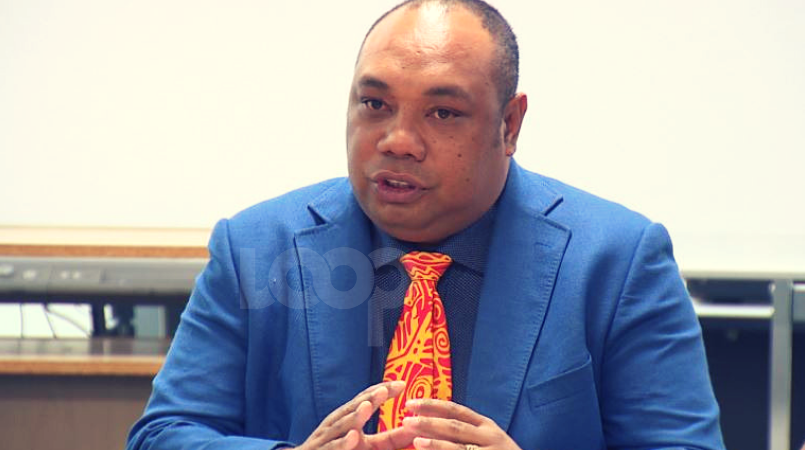
The annual treatment for AIDS is costing the PNG Government over K25 million.
Speaking at the recent observance of World AIDS Day, Health Minister Jelta Wong said: “The government, in its 2020 budget, has set aside an additional K10 million for HIV/AIDS treatment.”
Wong said the first case of HIV was diagnosed in 1987 in Port Moresby. Seven years later, PNG’s HIV epidemic was described as being generalised when 1 percent of the sexually active population in the country were diagnosed with HIV infection.
“It is now almost over 20 years and the HIV epidemic is steadily growing with frightening new HIV-related statistics emerging each year,” he stated.
“We now know that there are over 48,000 people living with HIV/AIDS across the country.
“The number of new HIV infection recorded every year is still over 2,500 and the number of people dying from AIDS related illnesses is still high at around 1,000 per year, though with the introduction of the Anti-Retroviral drugs we are now seeing a decline in the number of deaths over the three years.
“We now know that there is a high level of drug resistance in the first line treatment we use currently in PNG. WHO, National Department of Health and PNG Institute of Medical Research have confirmed this in the most recent study released this year.
“This means that the cost of moving onto second and third line treatment will be more expensive. This will put a burden on the health budget and other resources to effectively curb this growing problem.
“Going forward, how effectively can we as a collective body address this issue? To begin with, we must first come up with effective policies and plans. These policies and plans must be accurately guided by strategic information and data collected in the right places and in a timely manner.
“As you may be aware already, the Prime Minister of PNG recently launched the five-year HIV/AIDS Strategic Plan in Parliament in September 2019. This demonstrates the willingness and the strong commitment from the Marape/Steven government to put HIV/AIDS as a priority development agenda.
“You also know very well that there have been three different ministers looking after this Health/HIV portfolio in the space of less than two years. I can assure you that I am very passionate about health in general, especially public health issues such as TB and HIV.
“As Minister responsible for Health and HIV, my office is committed to supporting the relevant government agencies, National AIDS Council Secretariat (NACS), Health Department, Provincial Health Authorities (PHAs) and other stakeholders to collectively implement this five-year plan,” Wong stated.
“The role of the development partners, key stakeholders, churches, community groups including the high risk populations is crucial in mitigating the challenges we have to achieving the desired outcome by 2030 and beyond.
“The role of the communities is pivotal in the fight against HIV/AIDS, thus the 2019 World AIDS Day Theme this year is ‘Communities make the real difference in HIV/AIDS’.
“We now have data that shows us clearly that working in the focused affected communities and through the key populations, such as men who have sex with men (MSM), female sex workers (FSW), transgender men (TG) and other high risk men and women is the best way forward with the limited resources we have. The new five-year National STI and HIV Strategy is specific and can help us achieve the targets and goals if properly funded and implemented over the next remaining three years.
“I am also aware that the work in HIV/AIDS is difficult as it deals with the livelihood of people and involves a lot of issues on law, stigma and discrimination and views and opinions from the churches. These are difficult issues that challenge us in areas of religion, traditions and cultures and the laws and policies of our land.
“We must work together to collectively mitigate these challenges in creating that enabling environment that we all desire.
“I now call on NACS to focus and strengthen its HIV prevention programs and continue to work on the law and policy reforms.
“I also call on the Health Department to tidy up the cracks we currently have in the HIV Care and Treatment programs. The big issues of HIV drug stock out, the very poor performance of the Prevention of Mother to Child programs, the HIV late diagnosis and loss to follow up of people already on treatment and the serious issue of emerging HIV drug resistance must immediately be addressed.
“I am also keen to continue the ongoing discussions with our development and bilateral partners to see how best we can guide resources and support to assisting the ongoing fight against TB, HIV and gender-based violence as well. An important part of this dialogue is to assure our development partners that as a government, we must step up effective and efficient management of their resources investment to these intervention programs for much better sustained outcomes.
“The notable and traditional donor partners like the government of Australia, USA, the Global Fund and others, including the UN JOINT Programs on HIV/AIDS – your support and contributions is very much needed at this time as we continue and strengthen this strong partnership into the years to come because as Minister responsible, I have a strong conviction that ‘health is about life, it must never be compromised!’”
